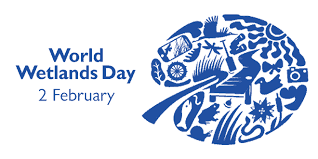Bali Ministerial Package
About
· The Bali
Package is a trade agreement resulting from the 9th
Ministerial Conference of the World Trade
Organization in Bali, Indonesia on 3 to 7 December 2013.
· The
package is part of the Doha round, which began in 2001.
· The
centrepiece of the package is a new agreement on trade facilitation aimed at
reducing red tape, and facilitating customs procedures in an effort to cut down
the cost of doing business.
· The
accord includes provisions for lowering
import tariffs and agricultural subsidies, with the intention of
making it easier for developing countries to trade with the developed
world in global markets.
· Developed
countries would abolish hard import quotas on agricultural products from the
developing world and instead would only be allowed to charge tariffs on amounts
of agricultural imports exceeding specific limits.
· Another
important target is reforming customs bureaucracies and formalities to
facilitate trade.
Area
of Bali package
· The
Bali Package covering four areas as follow -
Ø The Trade Facilitation
Agreement (TFA), active since 22 February 2017
when two-thirds of the 164 WTO members formally accept the
Agreement. The TFA aims to reduce red-tape and streamline customs.
Ø Food security:
General Services; Public Stockholding for Food Security Purposes; Understanding
on Tariff Rate Quota Administration Provisions of Agricultural Products, as
Defined in Article 2 of the Agreement on Agriculture; Export Competition.
Ø Cotton:
Subsidies for trading cotton was implemented by the WTO.
Ø Development and Least Development
Countries (LDC) issues: Preferential rules of origin for
Least-Developed Countries (simplified rules for identifying origin and
qualifying for preferential treatment with importing countries.), Operationalization
of the Waiver Concerning Preferential Treatment to Services and Service Suppliers
of Least-Developed Countries (preferential treatment to be given to LDCs for 15
years from date of agreement adoption.), Duty-Free Quota-Free (DFQF)
Market Access for Least-Developed Countries, Monitoring Mechanism on Special
and Differential Treatment.
|
Doha
Development Round · The Doha
Development Round or Doha Development Agenda (DDA) is the
trade-negotiation round of the World Trade Organization (WTO). · Its objective
was to lower trade barriers around the world, and thus facilitate increased
global trade. · The Doha Agenda
began with a ministerial-level meeting in Doha, Qatar in 2001. · The major
factors discussed include trade facilitation, services, rules of origin and
dispute settlement. Special and differential treatment for the developing
countries were also discussed as a major concern. |



Comments
Post a Comment